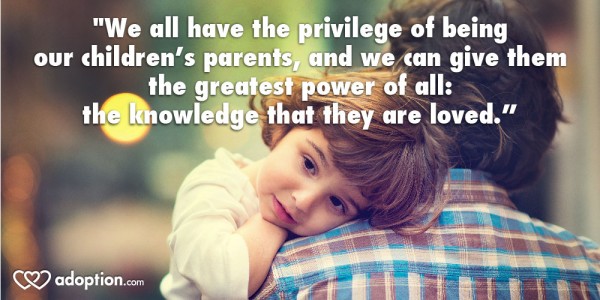In August of 2013, I was a hopeful adoptive parent, and we were matched with an amazing expectant mom. One afternoon, I was on the phone with her when I realized I wasn’t processing what she was saying. Worry, exhaustion, and a powerful knack for over-analyzing our journey to adoption had caused the cogs of my brain to jam and stall, somehow causing “This placement might not happen” to skip like a record in my brain. We were in the middle of a 4-month match, and we’d been spending this time getting to know the expectant parents as well as we could, doing this delicate dance of wanting to show them that we were interested and available but also willing to give space and empathy as needed. Underneath it all, we were freaking out a little (okay, a lot). It was a tenuous time of being on the brink of something wonderful, while feeling vulnerable because our future was in someone else’s hands.
So many hopeful adoptive parents experience this. Then placement either happens or it doesn’t. You eventually realize there was nothing you did or didn’t do during the match phase that caused this woman to place her child with you. Sure, you might have given her comfort with your empathy and you might not have scared her away by keeping your crazy in the closet, but you realize this was never something you could have controlled. On the day a baby is finally placed in your arms for good, this crazy thing happens and the tables turn. You take your new child home, and that baby’s birth mother goes home empty-handed. It’s everything she can do to be brave. Irrational fears swarm in her mind.
In the days and weeks after placement, you probably gain true empathy slowly. Everything doesn’t dawn on you all at once, quickly giving you all the tools you need to relate to the panic your child’s birth parents are feeling; rather, you see glimpses of your pre-placement self when
- You forget to respond to a text. Soon after, you recognize that odd edge of panic buried underneath words like “Just checking” and “Everything ok?” when she has to follow up with you.
- You realize your child’s birth mom apologized profusely the first time she thought she stepped on your toes because she’s afraid you’ll go away (and take her child with you).
- You notice you’re getting texts at identical intervals, like exactly every 2 days. She is pacing herself like you once did.
- Your child is held once again by her birth mother, shortly after placement, and you hear, “Is it okay if I…” and the roles have changed. You are now your child’s mother, too.
I’ve heard so many birth mothers talk about the “shift of power” that happens after placement. It’s a sad way to think about it, but it’s a very real perception in many adoption relationships. I can remember being matched and thinking about how this expectant mother had the “power” to make me crumble, or how she had the “power” to make me a mother. She had the “power” to take my hopes and dreams away in a matter of seconds. In a recent conversation with my daughter’s birth mother, she admitted an irrational fear that we would disappear. We have a son, as well, and she’s seen the strong relationship we’ve forged with his birth mother and how sincere we are about believing open adoption is best, and she admits that she doesn’t truly believe we’ll ever go anywhere, but she recognizes we have the “power” to do it. It’s that perceived power that’s so scary.
The only way to counteract that power is through empathy. I realize I have the “power” to calm her fears. I have the “power” to show her she is genuinely loved for who she is–to our entire family–and not just because she’s my daughter’s birth mother. It’s not power, really; it’s “ability” or “privilege.” I have the “privilege” to not only make good on my promises, but to do the unexpected: extra photos, sweet remembrances on Birth Mother’s Day and Mother’s Day, and showing her how important she is to her daughter. Our children’s birth mothers have the “ability” to calm our fears, too, by staying continually active in their children’s lives, or by simply doing their best to deliver stability and consistent love to our children. They have the “ability” to tell us we’re good mothers and fathers, that we make them proud, and to entitle us to parent their children.
It’s not power; it’s just newly assumed roles. It’s our duty as parents, birth and adoptive. We have commitments to keep, not only for our own comfort, but because our children deserve it. They deserve to see their adoptive parent go the extra mile for the people who gave them life. They deserve to see their birth family embrace their adoptive family so they can feel validated and whole. We have the power to empower each other for the benefit of our children, to push past the fears, and to never take advantage of the “power” we might have. No matter the exact role, we all have the privilege of being our children’s parents, and we have the ability to give them the greatest power of all: the knowledge that they are loved, fully and completely, and that they are at home among us all.
I want to hear from you, so lend your voice by commenting below and adding to the discussion. Did you feel powerless either before or after adoption placement? How did you deal with how the tables turned and roles changed? What are some things your children’s birth or adoptive parents have done to ease your fears and empower you? Share your stories!

